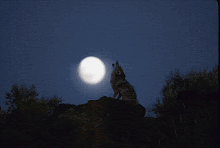 TEGUCIGALPA - Il presidente dell’Honduras, Manuel Zelaya dichiara dai microfoni della catena televisiva latinoamericana Telesur di essere stato «rapito e di essere vittima di un complotto». Si trova adesso in Costa Rica, dove è stato condotto con la forza dai militari; la sua presenza in Costa Rica è confermata dal ministro costaricano della Sicurezza pubblica, signora Janina del Vecchio. Il capo dello stato dell’Honduras, alleato del venezuelano Hugo Chavez, è stato bloccato all’alba
TEGUCIGALPA - Il presidente dell’Honduras, Manuel Zelaya dichiara dai microfoni della catena televisiva latinoamericana Telesur di essere stato «rapito e di essere vittima di un complotto». Si trova adesso in Costa Rica, dove è stato condotto con la forza dai militari; la sua presenza in Costa Rica è confermata dal ministro costaricano della Sicurezza pubblica, signora Janina del Vecchio. Il capo dello stato dell’Honduras, alleato del venezuelano Hugo Chavez, è stato bloccato all’alba dai militari all’interno della sua residenza, poco prima dell’apertura delle urne per il contestato referendum di revisione costituzionale.
dai militari all’interno della sua residenza, poco prima dell’apertura delle urne per il contestato referendum di revisione costituzionale.TENSIONE - Successivamente all'arresto del presidente, testimoni hanno riferito che gas lacrimogeni sono stati sparati contro un gruppo di circa 500 manifestanti davanti al palazzo presidenziale. Inoltre sono stati dispiegato dei blindati non solo nelle strade di accesso alla residenza del presidente arrestato ma anche in altri punti della capitale. Gruppi di militari stanno prendendo, inoltre, il controllo delle sedi di alcuni edifici della pubblica amministrazione. Nella capitale ci sono anche interruzioni nella fornitura dell'energia elettrica.
IN TV - «Ci sei tu dietro a tutto questo?», ha chiesto Manuel Zelaya direttamente al presidente degli Stati Uniti Barack Obama, parlando alla televisione Telesur dal Costa Rica. Zelaya ha anche detto che «se (Washington) non dà il proprio sostegno a questo colpo di stato, può vanificare questo attacco contro il nostro popolo e contro la democrazia». E la Casa Bianca ha risposto respingendo con forza l'accusa: «Non c'è stato alcun coinvolgimento statunitense in quest'azione contro il presidente Zelaya», ha riferito un funzionario sottolineando di rifersi al leader honduregno sempre con il titolo di presidente.
OBAMA «PREOCCUPATO» - Il presidente americano, Barack Obama, si è «profondamente preoc
 cupato» per la detenzione e l'espulsione del presidente dell'Honduras, Manuel Zelaya, e ha chiesto agli «attori politici e sociali» del Paese il rispetto delle norme democratiche e dello stato di diritto. Per Obama, «ogni tensione e ogni disputa dovrebbe essere risolta in modo pacifico, attraverso il dialogo». In precedenza, il presidente del Venezuela Hugo Chavez aveva chiesto al presidente Obama di pronunciarsi contro il golpe in Honduras. Obama dovrebbe prendere una posizione «così come abbiamo fatto noi», aveva dett
cupato» per la detenzione e l'espulsione del presidente dell'Honduras, Manuel Zelaya, e ha chiesto agli «attori politici e sociali» del Paese il rispetto delle norme democratiche e dello stato di diritto. Per Obama, «ogni tensione e ogni disputa dovrebbe essere risolta in modo pacifico, attraverso il dialogo». In precedenza, il presidente del Venezuela Hugo Chavez aveva chiesto al presidente Obama di pronunciarsi contro il golpe in Honduras. Obama dovrebbe prendere una posizione «così come abbiamo fatto noi», aveva dett o Chavez in dichiarazioni alla rete Telesur parlando di «colpo di Stato». Quello in corso in Honduras contro il presidente Manuel Zelaya è «un Colpo di Stato troglodita» ha detto il presidente Chavez.
o Chavez in dichiarazioni alla rete Telesur parlando di «colpo di Stato». Quello in corso in Honduras contro il presidente Manuel Zelaya è «un Colpo di Stato troglodita» ha detto il presidente Chavez.LA UE CHIEDE LA LIBERAZIONE - Intanto i ministri degli esteri dell'Ue hanno «condannato con forza l'arresto del presidente dell'Honduras» Manuel Zelaya chiedendone «l'urgente liberazione». In un documento pubblicato domenica a Corfù, ai margini della riunione dell'Osce, i 27 ministri auspicano un rapido «ritorno alla normalità costituzionale» nel paese centramericano. L’Organizzazione degli stati americani (Osa) ha indetto una riunione d’emergenza per discutere la situazione in Honduras.
LA CRISI ISTITUZIONALE - L'arresto arriva dopo la delicata crisi istituzionale che si era aperta a seguito della decisione di Zelaya di rimuovere il capo di stato maggiore delle forze armate, Romeo Vasque
 s: decisione contestata dallo stesso militare, la cui reintegrazione all'incarico era stata d'altra parte chiesta dalla Corte suprema honduregna. Il pomo della discordia è il referendum di domenica, che dovrà decidere se convocare o no l'elezione di un'assemblea Costituente voluta secondo i sondaggi dall'85 percento della popolazione. E i soliti noti non ci stanno: le élite, l'esercito, le casta politica conservatrice, sono disposti a tutto purché nel paese neanche si parli di Assemblea Costituente. "È bastato solo l'odore di una Carta costituzionale che per la prima volta mettesse nero su bianco diritti civili e strumenti per ottenerli, perché si mettesse in moto la macchina golpista che durante tutta la storia ha impedito giustizia sociale e democrazia in tutto il Centroamerica", spiega lo storico e giornalista Gennaro Carotenuto.
s: decisione contestata dallo stesso militare, la cui reintegrazione all'incarico era stata d'altra parte chiesta dalla Corte suprema honduregna. Il pomo della discordia è il referendum di domenica, che dovrà decidere se convocare o no l'elezione di un'assemblea Costituente voluta secondo i sondaggi dall'85 percento della popolazione. E i soliti noti non ci stanno: le élite, l'esercito, le casta politica conservatrice, sono disposti a tutto purché nel paese neanche si parli di Assemblea Costituente. "È bastato solo l'odore di una Carta costituzionale che per la prima volta mettesse nero su bianco diritti civili e strumenti per ottenerli, perché si mettesse in moto la macchina golpista che durante tutta la storia ha impedito giustizia sociale e democrazia in tutto il Centroamerica", spiega lo storico e giornalista Gennaro Carotenuto.Sequestrati da "uomini incappucciati" gli ambasciatori di Cuba, Venezuela e Nicaragua.
Il popolo si sta opponendo al golpe. El pueblo resiste al golpe.
Per maggiori informazioni: telesurtv





























